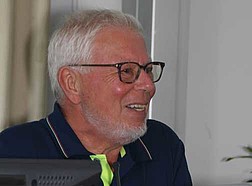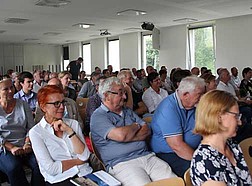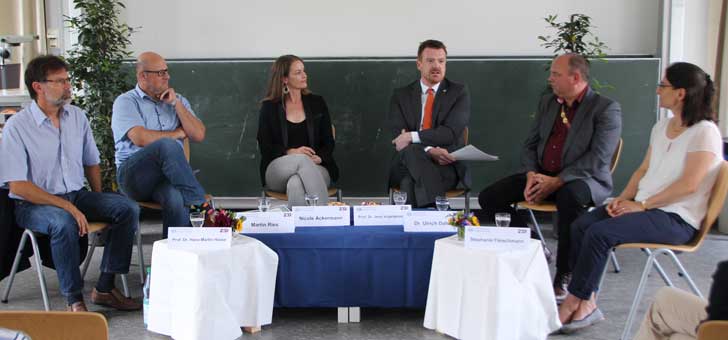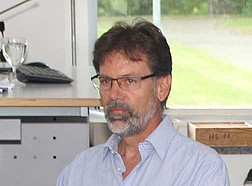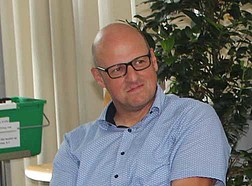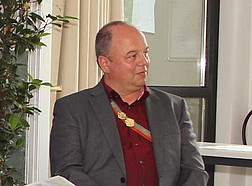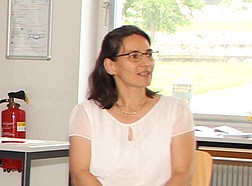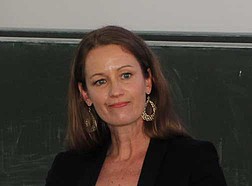In the following there are excerpts from the discussion, which lasted a total of about an hour.
Prof. Vogelgesang: A quick pace and pressure to perform characterize student life today: A shortened Abitur ending when you’re 17, three years for a Bachelor’s, then a Master’s, and written exams throughout your entire program. You graduate when you’re 23 or 24. That was definitely different before. Is it even possible to speak of a lost world that students today can no longer even imagine?
When asked about their favorite professor, all participants were able to spontaneously name one or more favorites.
In summary, the lecturers named were characterized by social and subject-area competence, and they held interesting lectures that included a lot of examples and used experiments either to loosen things up or to make the theory more tangible. Even then, use of media was an important method to make it easier for students to understand the content: “Back then it was a slide, and today it’s a projector,” said Prof. Haase, who directs an institute himself today. None of the panel participants was able to remember a female lecturer. Prof. Vogelgesang concluded this part with the statement: “Thankfully, a lot has changed in that regard in the meantime.”
Living at home, commuting, or close to campus?
Even then, commuting was a possibility (“for love every day from Pforzheim”) or students travelled from their parents’ house to the university so they could still by pampered by their parents. The panelists didn’t see much change on this point between then and now.
How were the TMS parties back then?
The importance of the TMS parties varied among the panelists. The fact is: None of the participants fit the cliché of having met their current partner at a TMS party.

